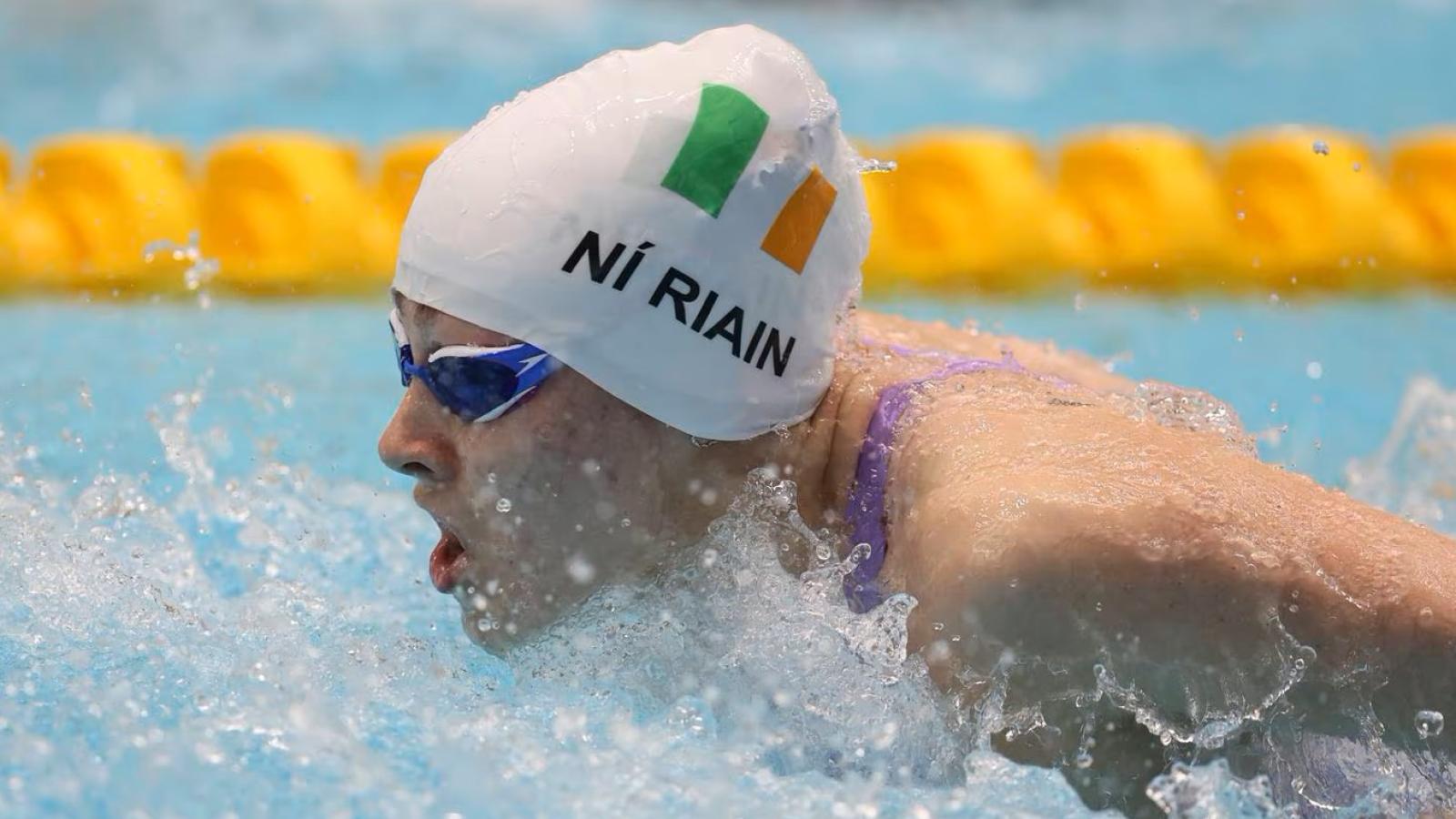
The Irish Times/Sport Ireland Sportswoman Award for April: Róisín Ní Riain (Swimming)
Róisín Ní Riain set off for the European Para Swimming Championships last month with high hopes, but she hadn’t quite anticipated having to make room for five medals in her luggage when returning home to Limerick after a week of competition.
To put it mildly, it was a successful trip to Portugal for the teenager, as it was for the whole team, 12 medals were collected in all.
After a gruelling schedule that saw her take on six events, she had 11 races in six days between heats and finals, she treated herself to a couple of days off when she got back. But no more than that. The Paralympics, after all, are less than four months away, and they have always been the main target for the year.
So no wild partying on Tuesday when you turned 19?
“No! I was training in the morning and evening, we’re right back in to it now, so head down again. But yeah, I was delighted to be coming home with a couple of medals . . .”
Five.
“Yeah, five. It can be difficult coming down from an experience like that, managing all the emotions that come with it, but seeing my friends and getting back in to training helps with all that, getting back in to the routine.”
The conundrum now for Ní Riain, having won gold in the 100m breaststroke and 100m backstroke, silver in the 100m butterfly and 200m individual medley and bronze in the 400m freestyle, is how much does she take on in Paris?
“It was definitely a hectic schedule, I was swimming six of the seven days. But having done them all, I now have a good idea of what I want to focus on. There’s a bit of decision-making to be done, for sure, but I’m talking with my coaches and seeing what they think I’m capable of and what’s best for me. It was a long week all right, and a very busy schedule.”
The highlight?
I would say the 100 backstroke, that was probably the medal that meant the most to me. That’s been my main event since I was quite young, so yeah, winning that was special. It was a good race, but there are definitely some things that need cleaning up, so there’s a lot of work to be done on that race specifically. But that makes it even more exciting about what could come.”
Three years ago Ní Riain was the youngest member of the Irish team at the Tokyo Paralympics, and while she didn’t medal she looked comfortable enough at that level for one so young, reaching five finals.
Since then her stock has risen dramatically in her sport, capped by winning gold and silver at the World Para Swimming Championships in Manchester last summer, followed by her form in Portugal, not to mention a 200m backstroke world record along the way. Expectation-wise, then, the 2020 and 2024 Paralympics are worlds apart.
“Yeah, for sure, they are. I was only 16 in Tokyo, so for me it was just about taking in the experience and learning from every time I got out there to race. But even though expectations will be higher in Paris, I don’t like to put too much pressure on myself. I always grew up with the mindset that once I did my best, I would be happy with that. And that mindset helps me calm my nerves a little bit and not get too overly nervous for the bigger competitions.
“But of course I can take a lot of confidence from the Europeans. We saw it as a kind of prep meet ahead of Paris, it was a great opportunity to be able to get out there and get that bit of racing done against our competitors before the summer. We have a couple of more meets in Ireland over the next couple of weeks, but the Europeans were our last international racing opportunities before the Paralympics.”
Ní Riain isn’t just back to preparing for Paris, she’s also fine-tuning her build-up to next week’s exams at University of Limerick where she’s in her first year of a science teaching degree.
As she outlined to Ian O’Riordan back in December, it makes for the busiest of lives.
“It’s 6.30am to 8.30am [training] every morning, except Sunday morning. And four evenings a week, Monday, Tuesday, Thursday, Friday, 4pm to 6pm. Sometimes 7pm.”
With her studies and exams thrown in to the mix.
“You know, I think I’m probably used to it,” she laughs on being asked if there are 48 hours in her average day.
“And to be honest, I do enjoy it. As long as you’re staying organised and on top of everything, it’s not too hard to balance it all. You just need to give equal time to your swimming and to your studies, and then also to have some down time too, that’s really important. And once you get that balance right, you can enjoy it all and do everything to the best of your ability.”